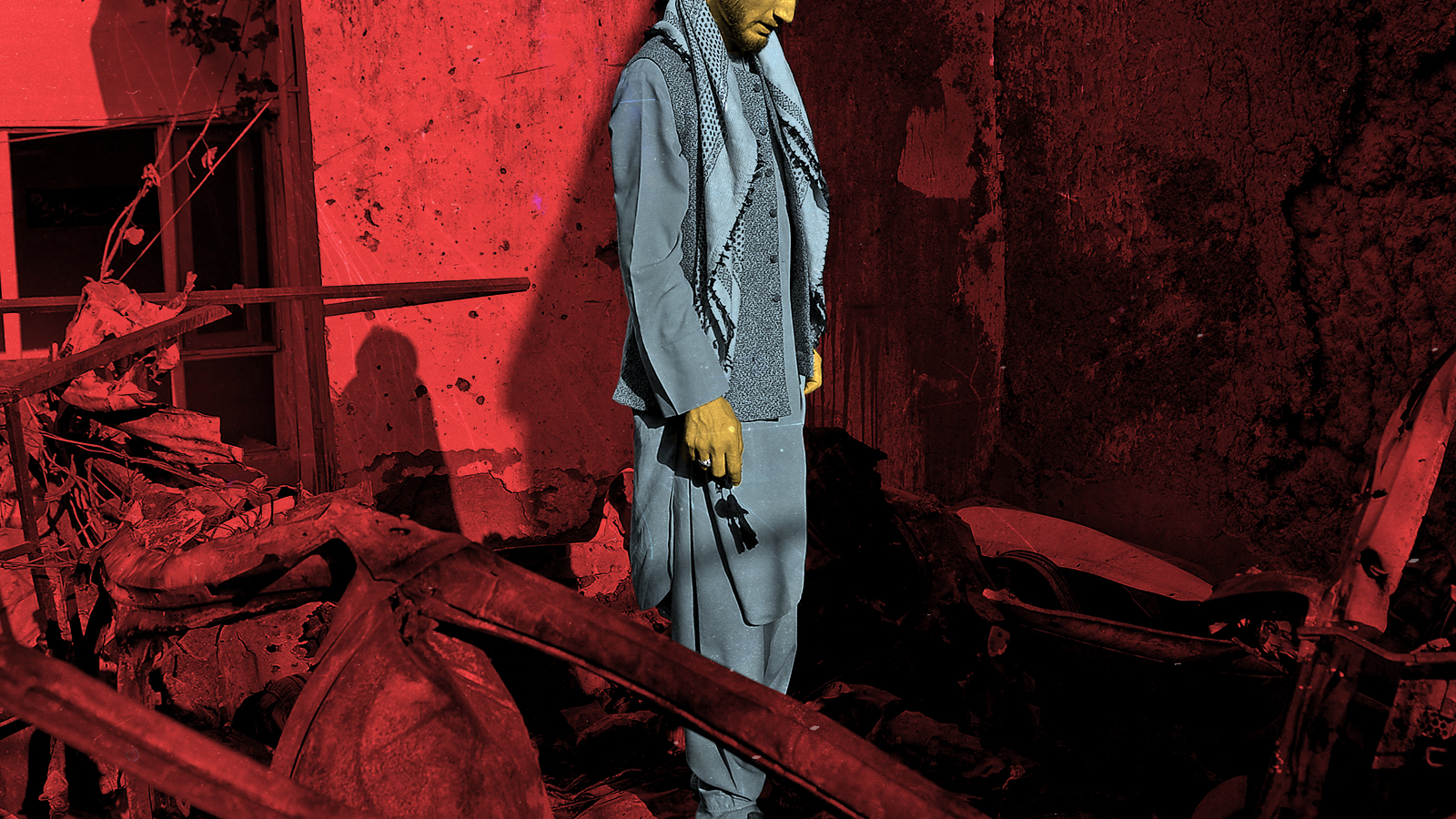Once again, the U.S. justifies the unjustifiable


A free daily email with the biggest news stories of the day – and the best features from TheWeek.com
You are now subscribed
Your newsletter sign-up was successful
The United States government believes it is perfectly reasonable — or, at least, "not unreasonable" — to kill an innocent family of civilians.
If that sounds brutal, consider this: A Pentagon review of the August drone strike that wrongly killed 10 members of an Afghanistan family during the U.S. pullout has concluded that no one in the military should be disciplined for the attack. A slaughter that Gen. Mark Milley initially called "righteous" was decidedly unrighteous, but the review determined that the process which led to the attack was fine. It's the result that turned out badly.
"I found that given the information they had and the analysis that they did — I understand they reached the wrong conclusion, but ... was it reasonable to conclude what they concluded based on what they had? It was not unreasonable," Air Force Lt. Gen. Sami Said told The Associated Press. "It just turned out to be incorrect."
The Week
Escape your echo chamber. Get the facts behind the news, plus analysis from multiple perspectives.

Sign up for The Week's Free Newsletters
From our morning news briefing to a weekly Good News Newsletter, get the best of The Week delivered directly to your inbox.
From our morning news briefing to a weekly Good News Newsletter, get the best of The Week delivered directly to your inbox.
There is a lot of work being done by the word "just" in that last sentence, a sort of shrugging "oops" that implicitly minimizes the catastrophic results of the mistake. (To be fair, Said also called the deaths "regrettable.") That's awful, but the larger problem is that such mistakes are routine: Researchers suggest that at least 22,000 civilians — and probably many more — have been killed in U.S. airstrikes and drone strikes since 9/11. The Afghanistan attack was simply the one that drew attention. "There have been countless similar strikes over the years, and so many intentionally uncounted deaths, that have happened in the shadows," Matt Duss, the foreign policy advisor to Sen. Bernie Sanders (I-Vt.), noted on Wednesday.
The United States wrongly killed Zemerai Ahmadi and members of his family because it was trying to protect its own forces that were retreating from the country. That's seemingly understandable, but it is also reminiscent of so many police shootings of unarmed civilians because the officers mistakenly had a "reasonable belief" that they were in danger. The results, in both cases, can be similar: At home, police have faced a crisis of legitimacy among the people they are sworn to serve and protect, while abroad researchers have found that drone strikes often end up "harming rather than enhancing U.S. security" by generating rage among the families and friends left behind by the victims.
Governments routinely justify violence that is, in the end, wholly unjustifiable. It was ever thus, perhaps. But there should be nothing routine about the slaughter of innocents. If "the process" so often turns out terrible results without anybody having to take responsibility, then it's time to change the process. Right now, America's use of drone strikes doesn't seem very reasonable.
A free daily email with the biggest news stories of the day – and the best features from TheWeek.com
Joel Mathis is a writer with 30 years of newspaper and online journalism experience. His work also regularly appears in National Geographic and The Kansas City Star. His awards include best online commentary at the Online News Association and (twice) at the City and Regional Magazine Association.
-
 Big-time money squabbles: the conflict over California’s proposed billionaire tax
Big-time money squabbles: the conflict over California’s proposed billionaire taxTalking Points Californians worth more than $1.1 billion would pay a one-time 5% tax
-
 Did Alex Pretti’s killing open a GOP rift on guns?
Did Alex Pretti’s killing open a GOP rift on guns?Talking Points Second Amendment groups push back on the White House narrative
-
 Washington grapples with ICE’s growing footprint — and future
Washington grapples with ICE’s growing footprint — and futureTALKING POINTS The deadly provocations of federal officers in Minnesota have put ICE back in the national spotlight
-
 Trump’s Greenland ambitions push NATO to the edge
Trump’s Greenland ambitions push NATO to the edgeTalking Points The military alliance is facing its worst-ever crisis
-
 Why is Trump threatening defense firms?
Why is Trump threatening defense firms?Talking Points CEO pay and stock buybacks will be restricted
-
 The billionaires’ wealth tax: a catastrophe for California?
The billionaires’ wealth tax: a catastrophe for California?Talking Point Peter Thiel and Larry Page preparing to change state residency
-
 Trump considers giving Ukraine a security guarantee
Trump considers giving Ukraine a security guaranteeTalking Points Zelenskyy says it is a requirement for peace. Will Putin go along?
-
 Bari Weiss’ ‘60 Minutes’ scandal is about more than one report
Bari Weiss’ ‘60 Minutes’ scandal is about more than one reportIN THE SPOTLIGHT By blocking an approved segment on a controversial prison holding US deportees in El Salvador, the editor-in-chief of CBS News has become the main story



